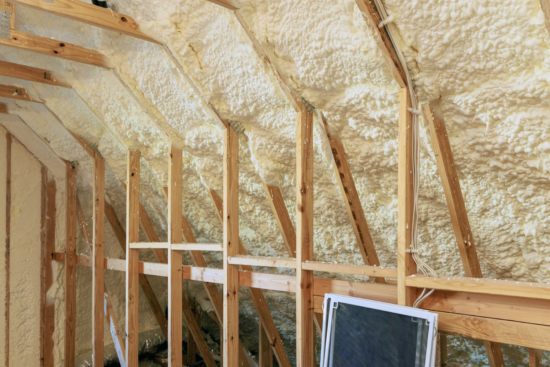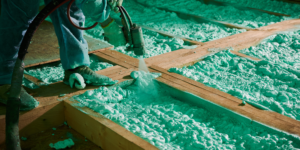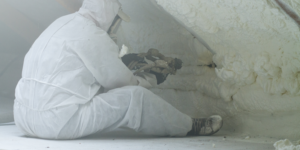© All Rights Reserved | Roof Replacement and Repair - Zaman Roofing LLC. | Website Design & CT SEO Powered by High Point SEO CT
- Google Rating5.0Based on 33 reviewsZaman Roofing - CT Roofing Contractors & Roof Repair5.0Sergey Y."Zaman Roofing” recently completed a roof replacement project in our condo complex, and we are extremely satisfied with their service. From start to finish, their team demonstrated professionalism, efficiency, and exceptional craftsmanship. They were prompt in their communication, providing detailed explanations and answering all our questions. The crew arrived on time, worked diligently, and completed the project within the estimated timeframe.Not only did Zaman Roofing exhibit outstanding technical skills, but they also ensured minimal disruption to our daily activities. They took great care to protect our property, cleaning up thoroughly each day and leaving no trace of debris behind.The quality of the new roof is outstanding. Zaman Roofing used top-grade materials and paid attention to every detail, resulting in a sturdy and visually appealing finished product. The roof has significantly enhanced the overall appearance of our condo complex.We would highly recommend Zaman Roofing to anyone in need of roofing services. Their professionalism, expertise, and attention to customer satisfaction make them a reliable choice for roof replacements. We are grateful for their excellent work and would not hesitate to hire them again in the future.Christopher Z.Zaman Roofing was AWESOME!!!! This is my third time doing a roof in CT on my third home and Zaman did an outstanding job on my rather unique roof line. They even replaced a skylight. I needed a Roof Contract in place before insurance would allow the purchase because the seller was a DeeBag. Zaman worked with my realtor, banker, etc and even waited patiently while the seller delayed the process by 4 months. The week I closed, Zaman Roofing was up and at em. Stripping, prepping and replacing. In and Out. Property was nice and clean after the work was complete. I would highly recommend.Steve TZaman Roofing, located in Berlin, CT, truly excels in providing top-notch roofing services. I am absolutely thrilled to give them a well-deserved 5-star review for their outstanding work. They have proven themselves as experts in roofing Berlin CT, and I couldn't be happier with the results.When it comes to roofing in Berlin, Zaman Roofing stands out from the competition. Their team of skilled professionals demonstrated exceptional attention to detail during the installation of my new roof. They meticulously handled every aspect of the project, ensuring both aesthetics and durability were top-notch.What impressed me the most was Zaman Roofing's commitment to customer satisfaction. From my initial contact with them, they were responsive, courteous, and eager to understand my specific roofing needs in Berlin. Their exceptional customer service throughout the entire process made me feel valued as a client.Zaman Roofing's expertise in roofing Berlin is truly commendable. They have an extensive portfolio of successful projects throughout Berlin, CT, showcasing their skill and knowledge in a variety of roofing styles and materials. Regardless of the complexity of the job, they have the necessary resources to deliver exceptional results.I cannot emphasize enough how satisfied I am with Zaman Roofing's services in Berlin, CT. Their professionalism, reliability, and dedication to their craft are unparalleled. If you're searching for exceptional roofing services in Berlin CT, Zaman Roofing is the company to choose. They will exceed your expectations in every way.In conclusion, Zaman Roofing unquestionably deserves a stellar 5-star rating for their exemplary roofing services in Berlin, CT. Their expertise in roofing Berlin and roofing Berlin CT shines through in their exceptional workmanship and customer service. I highly recommend Zaman Roofing for all your roofing needs.Gary G.Zaman replaced the roof on my 2,200 sq. ft. colonial in 2015. The workmanship was perfect. Unfortunately, over time, the top-of-the line shingles discolored. He was totally supportive in getting the manufacturer to replace them at no cost to me. He just replaced the roof with the new shingles. It was another perfect job. It was completed in one day. The crew was great and they cleaned the area spotless.Chris DWe used Zaman Roofing for our Roof and Gutter Replacement, I acquired 5 quotes for the work and found Zaman to be the most reasonable, it was a Good Decision to choose Zaman Roofing, Seweryn was Professional in every aspect and the Clean-up was nothing short of Amazing, I would Highly Recommend using Zaman RoofingRobert D.Excellent Service and Value - great crew and easy to deal with - highly recommended !Sunghoon P.Great work and reasonable price. I am so happy with their service. I asked a bunch of questions before and after the service and his responses were very prompt and straight to the point. Highly recommend.Adrienne M.I am so pleased that I used this company. My new roof looks fantastic. Such a hard working crew. Seweryn was informative and professional. Price was very completive. Don't hesitate to use them you will be very satisfied. Highly recommend!Nancy M.Good communication, timely response and knowledgeable. Very happy with our experience and highly recommend this company.Beata M.We used Zaman for our roof replacement recently and are very pleased. They replaced our roof in one day and gave us a very competitive quote. Good quality of work. Highly recommended.Lori K.They were here when they said they would. Professional & left everything neat ,cleaned up everything. They were in & out in a day & a half. Would recommend Zaman roifing.Dan R.A+ service, professional and quick response time.Anna G.Zaman and his crew provide great workmanship they installed new roofs they take great pride in the work they do. They were punctual and did a amazing job with the roof installation and clean up. Highly recommend Zaman Roofing to family and friends. Thank you for the opportunity to work with such a amazing contractorScott M.Awesome contractor, I would highly recommend him to family & friends. Seweryn & his crew were here on time & worked diligently. They were the happiest workers I've ever dealt with (I am a former construction project manager with the Federal government). Any & all questions were answered. My neighbors couldn't believe they finished the job in one day & complimented how great the new roof looks.Clement D.Great roofing contractors. I love to recommend it to my friends and family.Karen 9.With the quality, price, timeliness, all round nice guy and great crew, Zaman Roofing LLC is what other companies aspire to be.... Clean, helpful and a pleasure to recommend....james C.Excellent experience from start to finish, all appointments and work times met in a timely fashion, workmanship and clean up left nothing to be desired.Would be a definite recommendation, very pleased.Margaret B.I had obtained multiple quotes and did my due diligence research and Seweryn Zaman came back with fair price and good recommendations. He was professional, explained everything that he was going to do and never once he rushed me during decision process. He showed up on time with his hard working crew and finished my roof in one day. I was amazed with his crew who worked like busy bees. Very impressed with the clean up process and the end product. Two months after he finished my roof he was still helping me deal with the insurance company making sure I had everything I needed. Thank you SewerynSteve B.Very professional and easy to work. The crew came in, replaced my roof and then cleaned up everything! Highly recommended.Jim O.Competitive quote among four others. Seweryn Zaman provided larger color samples of the shingle colors we were interested in. He obtained the building permit, showed up on the day expected with his entire crew. Our older roof was on 24" trusses and needed more plywood replaced than anticipated. He got the additional sheets replaced on the day of the re-roofing. The crew worked with him late until the job was done and picked up every piece of old debris. The roof passed final town inspection with no concerns. Zaman Roofing is easy to deal with; he's responsive on text messages and phone calls. I used them in the past for an emergency repair and he found a well-hidden leak from the builder.Dale C.The crews did a good job, and the leader of the crew did a great job when they replaced the roof of my house in Farming on 7/6&7 this year. When they worked on the project, they worked professionally and in detail. We are very pleased with the work they have done, and highly recommend people to have the company worked on their roof projects.Forrest B.Zaman's was very professional, excellent quality of work and very responsive to our needs. This roofing experience was excellent from start to finish and provided an excellent value. Would certainly recommend them to any friend.Yonatan M.We used Zaman Roofing to replace our roof in 2019 and could not be happier with the service and product. A highly professional company and great personal interaction with the owner. The workers took great care of our landscaping, and the owner was there frequently to supervise the work and take care of finishing touches like flashing the chimney. We have had zero issues since then and highly recommend this company.Quinn V.Zaman was awesome. He was communicative, on-time, and was able to give me a quick inspection of our roof despite the rain. I rarely have a contractor tell me that I didn't need to spend any money, but Zaman told me my roof was fine for the next several years.magdalena K.We recently used Zaman Roofing to replace our 26-year-old roof. Right from the start they were great! Sevy was extremely professional and knowledgeable and gave us a great quote. Everything was done as they described and the final project looked great. The owner was on the job from start to finish as he promised.Ariadna G.Our experience with Zaman Roofing was excellent. I was very impressed with both their work and their customer service. Seweryn was very knowledgeable and professional.Larry G.What a wonderful business. Very responsive. They showed up exactly when expected, completed the project quickly and accurately and left no trace after clean up. All with a very competitive price. I would highly recommend Zaman to anyone looking to have roofing work done.STEVE R.I was very pleased with the roof and gutter repairs performed by Zaman Roofing on two of my buildings. Good workmanship and fair prices, I would recommend and use again.Danielle D.These guys stripped and reshuffled my roof is 1 day! They did an awesome job. Roof is beautiful. He uses a dump trailer which is great and they cleaned up well. Very happy with the work. Also pricing was fair.

Choosing the Best SPF for Homes: How to Beat the Heat This Summer
Category: Roofing • March 25, 2024
The safety of our homes from the hard heat must be protected. The best method for better energy performance would be SPF (Spray Polyurethane Foam) of high quality, which would be used for that. This blog post will focus on the importance of SPF for houses and the summer period and also provide a summary of how to choose the best SPF. While we clarify the working process and the different types of SPF insulation, we will help you to make the right decision.
Understanding SPF: What it is and How it Works
SPF, which stands for spray polyurethane foam, is a liquid insulation that foams when sprayed. It is airtight and has good heat insulation and thermal insulation properties. The SPF creates an impermeable barrier, which prevents the hot air from coming into your home. It has a high R-value, which measures the resistance to heat flow. The emission of heat from the house decreases with the increase in the R-values of the insulation material.
Factors to Consider When Choosing SPF for Your Home
For the SPF selection for your house, you will have to consider many factors. First and foremost, take into account the climate and weather of your local area. In severe climates, it may be required that the insulating layer of SPF has a higher R-value. Next, you need to consider your roof and insulation. SPF grades may not be compatible with roofing and insulation materials but will be compatible with others. Besides, cost and budget are the primary factors to be considered when buying a house with SPF. Although high-quality SPF is expensive to start with, energy efficiency can be seen over time.
Types of SPF: Pros and Cons of Each Option
The foam forms of SPF are open-cell and closed-cell, basic. Lightweight, low R-value open-cell SPF has a lower R-value than the denser closed-cell SPF. It is more cost-effective and does a better job of soundproofing. In a humid climate, the barrier may need to be stronger as the facade is more vulnerable to the water. In contrast, closed-cell SPF is much denser and has a greater R-value, which allows it to insulate against heat transfer more effectively. It prevents the flow of water and adds to the building’s strength. Because of its density, the closed-cell SPF is more expensive and is properly installed by a highly skilled person.
DIY vs Professional SPF Installation: Which is Best?
You can install SPF insulation by yourself or have a professional do it for you. DIY installation can be cheaper, but not without the flaws. Excellent SPF application is impossible without specific tools and knowledge of safety. Insulation may get damaged during installation, which might result in health hazards. Nevertheless, ensuring that the SPF is installed by professionals will help this process comply with industry standards. Professionals can evaluate the specific conditions of your home and propose effective remedies.
If some errors are made, the person may feel that DIY installation is cheap, but it might turn out to be more expensive. Professional installation comes with a cost but ensures the quality of the job and its longevity. Specialists’ hiring will also give us ease of mind with warranties and guarantees.
Maintaining Your SPF: Tips for Long-lasting Protection
The life span of the SPF insulation is far shorter when no maintenance is done. SPF must be checked to the spot for damage or wear. Check for cracks, hollow places, and peelings. To prevent a catastrophe, solve any issues on time. SPF insulations need cleaning to make them work properly. The dirt and dust can reduce the levels of insulation. First, remove dirt and debris by using a soft brush or vacuum. Moreover, SPF may have to be reapplied to secure its insulating quality. The most important step is to consult your doctor to determine the proper reapplication frequency based on your skin type.
Common Mistakes to Avoid When Choosing SPF for Your Home
Avoid making these mistakes when you are selecting SPF for your home. First, the wrong SPF choice may lead to an insulation breach. Choose climate, roof type, and insulation type for the correct SPF number. Besides, a wrong installation could negatively affect the R-value of the SPF insulation. Use basic installation techniques and safety procedures if you install yourself. Alternatively, hire professionals to do the job. However, inadequate maintenance and reapplication will also lower the insulating performance. Keeping your SPF stashed away and checking and maintaining, it will prolong its lifespan and effectiveness.
The Benefits of Investing in Quality SPF for Your Home This Summer
Investing in good and efficient SPF house insulation when it is summer has a lot of advantages. First, a reduction in heat transmission and air leakage is facilitated, thus reducing energy consumption. This brings the cooling costs down since your HVAC system doesn’t have to work as hard to keep the temperature inside at a comfortable level. SPF insulation is a second benefit, as it provides good indoor air. Through this process, it ensures that clean and unpolluted air is available to people. It enhances their living conditions. Last but not least, a nice SPF area will add value to the home. The market now values energy efficiency in a home, and that is what SPF can deliver.
In a nutshell, SPF insulation is fundamental for combating summer heat. The process of choosing the correct SPF for your house will be easier once you have a basic understanding of how it operates and then take into account the climate, roof type, and budget. Evaluate the pros and cons of either open-cell or closed-cell SPF or foam insulation spray. If you are attracted to DIY installation, you’d better reconsider because professional installation will provide you with the correct application and durability. Regular revamping and reapplication of the SPF insulation will make it last longer and remain effective. High SPF can be of significant importance to your home in summer because it can enhance energy efficiency, indoor air quality, and property value.




